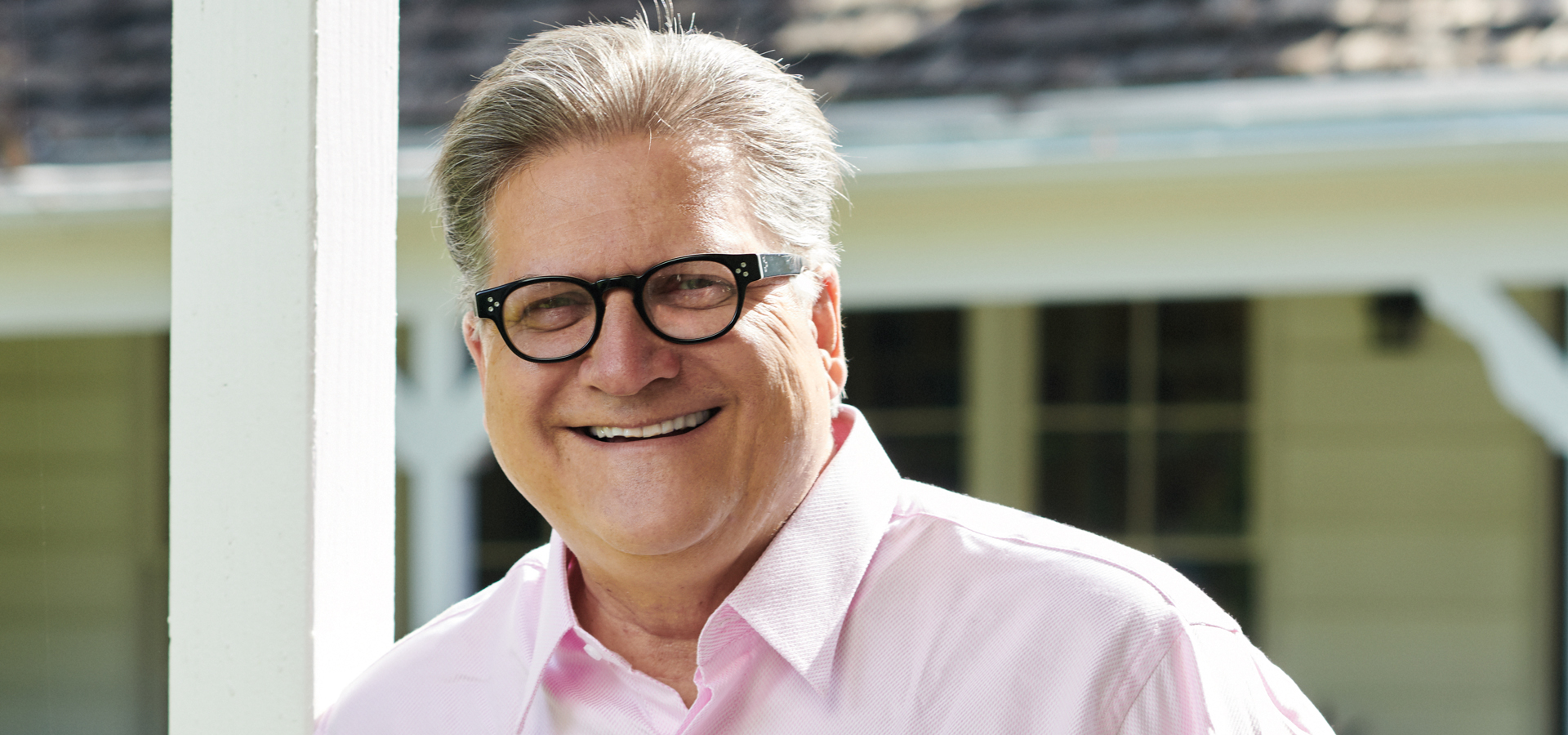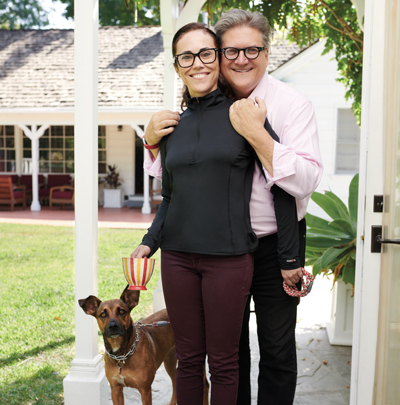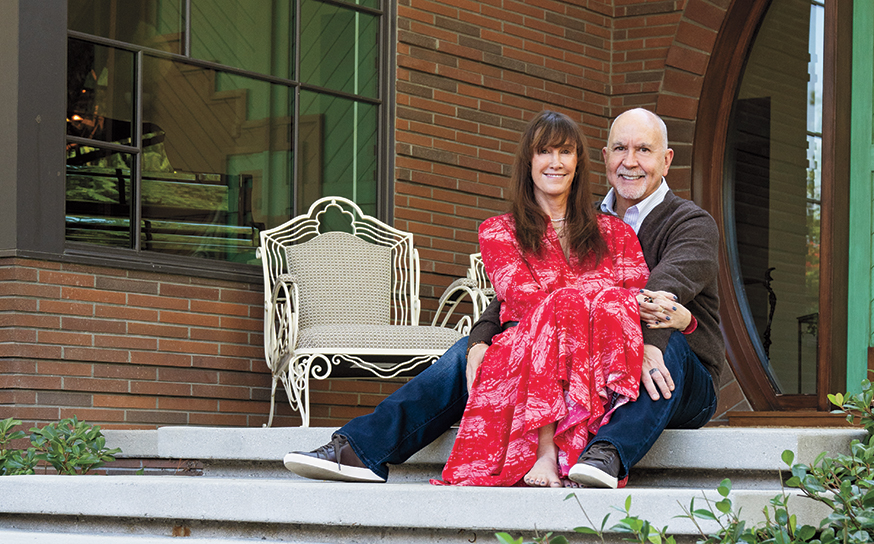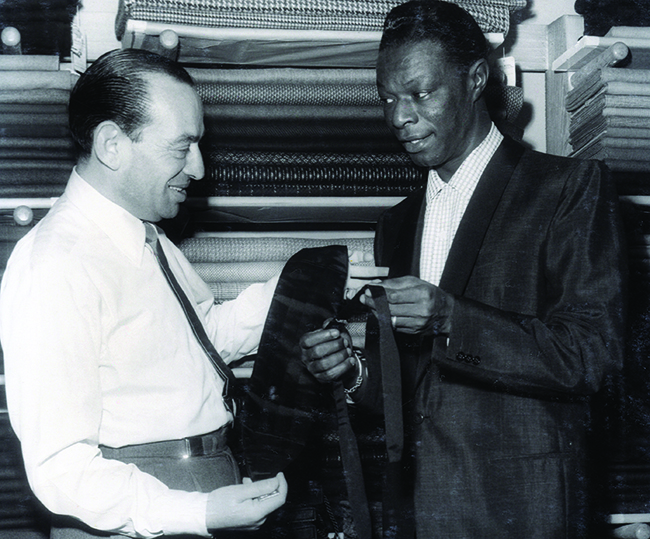
Democratic State Senator Bob Hertzberg on what’s next after his SB-10 bail bill victory.
This guy doesn’t give up.
-
CategoryPeople
-
Photographed byMichael Becke
In his role as a state senator for California’s 18th district, Bob Hertzberg (D) represents nearly 1 million residents of the Valley—including North Hollywood, Sherman Oaks, Studio City and Toluca Lake.
After a hard-fought battle, Bob made headlines this past August when he got the legislature to approve Senate Bill 10, which he co-authored. The far-reaching bill makes California the first state in the country to completely eliminate bail.
Here VB editor Linda Grasso shares some of the discussion she had with the energetic, impassioned lawyer, when the two sat down for coffee at his Van Nuys ranch home. Bob is divorced with two grown sons and is in a “serious relationship” with Katharine Tellis, who is a criminologist. Bob candidly shared thoughts on the bill’s approval, the “no glory” gig of politics and addressed why—amidst all the nasty backlash from lobbyists for the bail industry—he’s running for reelection.
 Why did you propose SB-10?
Why did you propose SB-10?
A few years ago, I discovered that 63% of all the people in California jails are pre-trial detainees—people not convicted of any crime but simply awaiting trial. The average bail in California is $50,000. If you can post it, you get out. If you can’t, you sit and rot in jail for what can be several months. In some of these cases people lose jobs and homes and sometimes even marriages. To me, that is justice based on wealth, and that’s not fair or prudent. We have such an overcrowding issue in our jails—not to mention the expense. It costs up to $216 per day to keep an inmate locked up.
So how will it work when the bill becomes law in October 2019?
When people are jailed, in most instances, they’ll go before a judge. No more bail schedules, which determine whether a person goes free. The judge will assess risk to public safety and risk of flight. The person can be deemed low, medium or high risk, and the judge will determine conditions for release or if the individual should remain in jail. If released, there will be no costs assessed to the individual. The important point here is that those who should remain in custody will remain so, and those who should be released will be returned to their community. In some cases the person may be required to report in; in others they may be required to use a location monitor.
It is so hard to get anything approved by the legislature. How did you do it?
I just kept at it and worked really hard. It took more than two years of back and forth with everyone from the ACLU to the lobbyists for the bail industry. And bail agents have continued to attack me personally for a variety of silly and completely fabricated things, in an effort to try to divert my energies from pursuing the legislation.
Some say being a state senator is a thankless job. Why do you do it?
It sounds trite, but the truth is that I just really care about this community, and I want to make it a better place. The San Fernando Valley needs a warrior, and I work as hard as I can to represent this community. People get into politics for all kinds of reasons—ambition, power, ego. For me it really boils down to being connected to my community, listening to the people and doing what is right.
Let’s talk about your political journey. You were elected to your first assembly seat for the 40th district in 1996.
Yes, and I went on to be reelected three times. During that period I was twice chosen as the 64th Speaker of the California State Assembly.
What marks did you leave on the Valley while representing the 40th district?
I helped pass legislation that hammered out agriculture-to-urban water transfers, providing a framework to end nearly seven decades of California/Colorado River water disputes. I also helped increase funds available through the “Cal-Grants” program, giving poor students unprecedented access to colleges and universities. I negotiated a compromise that allowed the legislature to break a decade-long logjam and place school bond-related measures before the voters. The resulting tens of billions in school construction funds became one of the largest municipal bond issuances in U.S. history.
Term limits forced your retirement in 2002. What did you do between then and 2014, when you were elected for the 18th district?
I went into the private sector, becoming a global, clean-energy entrepreneur and helping develop bipartisan policies as a leader in public-service groups like the Think Long Committee. I traveled extensively during that time, visiting much of China and numerous countries in Africa. And I co-launched a company that produced inexpensive, lightweight solar panels.
Sounds like a fruitful period. Why get back in?
It’s about fighting the good fight. There is no glory in it. It’s purely about doing the right thing and taking on the difficult battles no one wants to touch—like bail reform. I felt I had more to do.
You are running unchallenged for reelection this month. What will you focus on during your second term?
I’m really interested in technology. There is such a time lag with government, which moves slowly, and tech, which moves very fast. We need to figure out a way to marry the two. I’m working on a book right now about this, Fresh Eyes: Government in an Era of Unprecedented Change. I will also work with other San Fernando Valley legislators to bring our fair share here. We need to make sure that the money for roads and transportation infrastructure is generously and wisely spent here, our water infrastruce and parks are improved and that we are never left behind.
To contact Bob, email Senator.Hertzberg@senate.ca.gov or call the district office at 818-901-5588
Just a day after Governor Brown signed SB-10 into law in August, bail associations filed a voter referendum in an attempt to block the bill. The American Bail Coalition, along with bail lobbying and crime victims’ groups, have three months to submit to the state the estimated 366,000 signatures needed to qualify the referendum for the November 2020 ballot. If the referendum effort fails, SB-10 becomes law in October 2019. 











